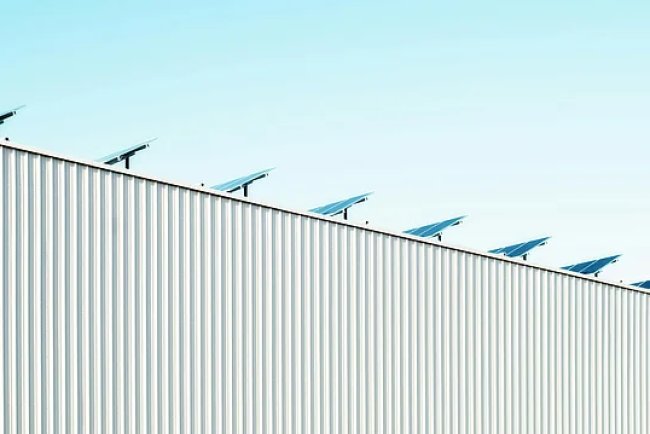Powering the Future: India's Landmark Battery Storage System Imminent
India's first commercially-approved Battery Energy Storage System (BESS) is being commissioned at Kilokri, South Delhi, by BSES Rajdhani Power Limited (BRPL). The 20 MW system will provide four hours of daily power, improving grid stability, integrating renewable energy, and reducing peak-hour electricity costs. Using advanced Lithium-iron-phosphate (LiFePO4) batteries, the BESS will enhance energy efficiency and minimize outages in the densely populated area. Developed in collaboration with IndiGrid and GEAPP, the project aims to serve as a model for future energy storage solutions in India’s transition to sustainable power infrastructure.

India's First Commercially-Accepted Battery Energy Storage System (BESS) to Augment Power Supply in South Delhi
In a significant milestone for power infrastructure development, a standalone Battery Energy Storage System (BESS) is being commissioned at Kilokri in South Delhi. The new BESS is the nation's first commercially-approved BESS, which will provide four hours of power supply on a daily basis. The project, initiated by power utility company BSES, is expected to be commissioned by the end of March or early next month.
The BESS, commissioned at the BSES Rajdhani Power Limited (BRPL) 33 KV sub-station in Kilokri, will bring excellent enhancement in power supply to the local population. The system will inject stability into the grid, absorb renewable power, and increase power reliability for a lakh of the people residing in Kilokri, which is a crowded, lower-middle-class residential complex in South Delhi.
The system comprises a total of 12 liquid-cooled batteries, nine of which have already been installed. The remaining ones will be installed soon. The 20 MW BESS can supply power for up to four hours a day — two hours in the daytime and two hours at night.
It will be utilized for controlling variation of electricity demand, boosting total supply of power, and preventing overload on the network. It will also have an important role to play in including renewable energy sources into the grid for distribution, which will be a driver in pushing India to move towards cleaner energy.
How It Works
The BESS further seeks to charge during off-peak when there is cheap or surplus power on the grid. While the peak demand hours, the system is supposed to release power from stored energy in an attempt to assist the grid to cover the peak demand. This eliminates the cost of buying power from the market during peak hours by avoiding expensive power supplies.
One of the key advantages of the system is that it employs Lithium-iron-phosphate (LiFePO4) batteries, which are among the world's best energy storage technology. The batteries are renowned for their stability, long lifespan, and efficiency and thus are perfectly suited for mass-storage energy applications. The BESS project has a 12-year lifespan.
The deployment of this system will likely render the supply of power more stable, minimize energy wastage, and stabilize the grid. The project will also facilitate the grid to handle more renewable power, allowing India to achieve its vision of a cleaner and greener energy mix.
Project Partnerships and Impact
BESS project is being developed in collaboration with IndiGrid and Global Energy Alliance for People and Planet (GEAPP). The partnership is engaged in increasing the adoption of renewable energy and storage technology in India, which is critical to provide a secure and sustainable power supply amid growing demand.
The BESS system will be of greatest benefit in regions such as Kilokri that suffer from constant power outages caused by overloading and poor infrastructure. With regular backup power during peak hours, the BESS will ensure the residents uninterrupted electricity supply, even during peak demand times.
The system will also advance the sustainability of the overall power grid by mitigating the expenditure of high-price peak power purchasing and selling on the grid. The BESS will optimize the operation of the grid and decrease the cost of energy by saving electricity in non-peak periods and topping it up during the peak time.
In addition to its technical excellence, the BESS project also possesses a built-in monitoring, evaluation, and learning framework. The framework will be applied in knowledge sharing and learning for other electricity distribution utilities, state commissions, and other stakeholders in the energy industry. The aim of this move is to serve as an example for other future similar projects in India and towards enhanced best practices for grid operation and energy storage.
Long-term benefits
The BESS will be advantageous to the local community and the energy sector at large in the long run. It will enhance the stability of the power supply and enable it to be harmonized with renewable energy. The system will lower carbon emissions and encourage clean energy solutions. The project will also be a model for other cities and regions to follow when building their energy infrastructure and transitioning their power system to sustainability.
Success in undertaking such an endeavor can spread to the integration of such energy storage systems in the whole of India. Given that the country is yet to tackle issues with power demand, grid stability, and integration of renewable energy problems, energy storage systems such as BESS will be all the more essential in providing a cheap, secure, and renewable supply of electricity.
Conclusion
India's first commercially- accredited independent BESS commissioned at South Delhi is a massive leap for the country towards re-defining the energy infrastructure and shifting towards cleaner, greener energy regime. The project will supply power to thousands of consumers on a day-to-day basis, provide grid stability, and facilitate solar-wind farm grid integration. Since the demand for energy storage is increasing day by day in India, the success of this project will be an inspiration for other projects in India.
Source: BSES Rajdhani Power Limited (BRPL)
What's Your Reaction?

















